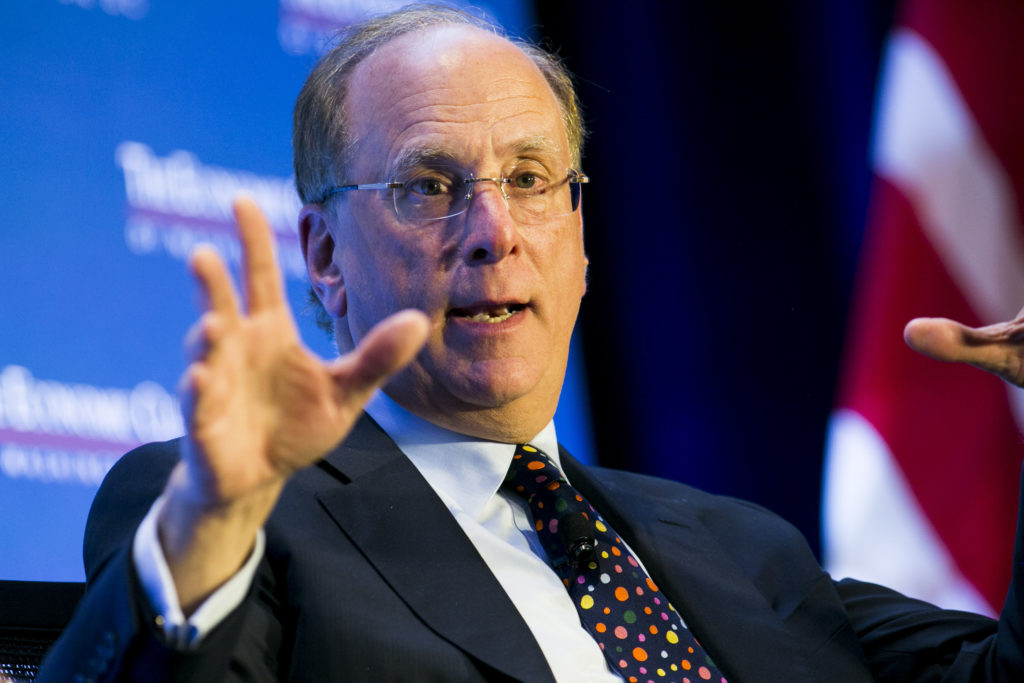Impact investing enables investors to ‘do good’ while making money. Green bonds, for example, provide the funds to develop renewable energy solutions, reducing dependency on fossil fuels. – Credit: Dave and Les Jacobs / Getty Images
Before the year’s end, the Investment Association – the trade body for UK fund managers – will publish a register of listed companies who have experienced large-scale shareholder revolts. Naming and shaming, it is hoped, will improve corporate governance.[1. Mark Kleinman, ‘Investor revolts register to shame more than 100 UK companies’, Sky News, 25 October 2017]
Excessive executive pay packages in particular have become totemic symbols of everything that is wrong with capitalism – greedy fat cats living the high life on self-set pay while ordinary workers struggle on stagnating wages. Since the financial crash, which exposed how many capitalists had been asleep at the wheel, shareholders have largely woken up to the threat that irresponsible business behaviour poses to the free market system. At the beginning of this year, the $6 trillion investment firm BlackRock wrote to every company in the FTSE 350 arguing that growth in executive pay awards and pensions, should not outstrip that of ordinary employees.[2. Chris Flood, ‘BlackRock demands end to excessive executive pay’, Financial Times, 15 January 2017]
But if capitalism is to rehabilitate its reputation, companies need to continue to demonstrate they can behave responsibly. Investors need to use their power to drive positive change, which is where the concept of impact investment comes in. That is, investment that delivers long-term returns by investing in companies that provide social and environmental benefits.

Private investment, public good
“Turn a profit not a blind eye” would be an aspirational tagline for capitalism. Instead, it’s the motto of Abundance, a peer-to-peer investment firm specialising in green projects, ranging from a solar farm in Swindon to a geothermal power plant in Cornwall. Investing in private equity funds that focus on “a better world” – to use Abundance’s phrase – is the driving principle of impact investment.
Project Snowball LLP, jointly founded by two charitable trusts, wants to establish impact investment as a mainstream investment option. Hetan Shah, Chair of Trustees at Friends Provident Foundation – a recent Snowball investor – explains that “Snowball will apply a social and environmental impact lens to all of its investment analysis, reporting and decision making.” The fund, Hetan says, is enabling investment in “microfinance in the developing world, housing for the homeless in the UK, and UK renewable energy projects that are co-operatively owned by the local community.” Without capital investment like Snowball’s, these types of projects wouldn’t exist.
Ethical investing 2.0
It may be harder to measure the additionality delivered by investors in public companies – after an initial public offering, the sale of shares is not creating new funds in the way Abundance or Snowball are. But ethical investment still has a role to play.
EQ Investors, a wealth management firm with B-Corp certification (meaning they meet high social and environmental standards), for example, offers investors a ‘Positive Impact Portfolio.’ Damien Lardoux, who runs the portfolio, tells me “the clear objective is to invest in companies with high quality products and services that are tackling social and environmental issues.”
Ethical investment has a long history, but has traditionally focused on screening-out or disinvesting ‘unethical’ companies, like tobacco and fossil fuels. The EQ model is about pro-actively investing in companies that deliver a net positive impact on society. Lardoux describes it as “ethical investing 2.0” and it’s increasingly popular. In the last two years, investment in the portfolio has doubled.
EQ, which provides quarterly client impact reports, use the UN Sustainable Development Goals as a measurement framework. Lardoux believes that as millennials make up an increasing proportion of investors, publishing impact data – not just financial data – will be the norm.
WHEB asset management, another B-Corp, is similarly mission-focused, investing in companies tackling global imperatives like climate change and resource scarcity. WHEB has an ‘impact calculator’ on its website that measures the positive effect of an investment against five environmental indicators. A £10,000 investment, for example, is associated with providing 300,000 litres of drinking water and avoiding 16 tonnes of CO2 emissions. George Latham, managing partner at the fund, insists that “investing in well-run, high-quality companies in strongly growing markets” makes commercial sense.
But while investing in ‘impact’ companies is an ethical thing to do, it doesn’t necessarily create additional value. That’s where investor activism comes in. Take, for example, a renewables firm. Their products are creating a positive impact, reducing dependency on fossil fuels. But internally, they may treat their workers poorly or behave wastefully in their supply chain. Investors who use their clout to change those practices are creating additional impact. That’s what WHEB and EQ Investors tell me they do, and it’s the sort of ‘activism’ shareholders should be engaged in as a matter of routine.
When the Investment Association publish their register this month, a renewed focus on shareholder activism will follow. It’s time that that conversation moves beyond curtailing C-suite pay and onto initiatives that can make a more permanent, well, impact.









Join the discussion
Join like minded readers that support our journalism by becoming a paid subscriber
To join the discussion in the comments, become a paid subscriber.
Join like minded readers that support our journalism, read unlimited articles and enjoy other subscriber-only benefits.
Subscribe